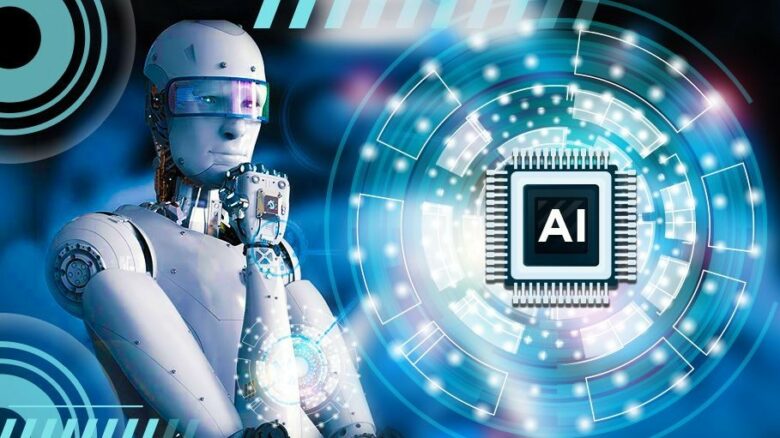Artificial intelligence (AI) has become a powerful force that is changing the way businesses operate around the world. One of the most important applications of AI is automation, where intelligent systems perform tedious, time-consuming, or difficult tasks for you. Automated solutions based on AI not only improve efficiency but also help businesses come up with new ideas and stay competitive in a rapidly changing market. Businesses that want to succeed in the digital age must understand how these solutions can transform their operations.
Changing the Way we Work Efficiently
AI automation has taken over tasks that were previously performed manually, significantly improving operational efficiency. AI systems learn from new data and change accordingly. This capability capability allows them to become better over time than standard automated systems that follow fixed rules. This means that tasks such as data analysis, customer service, and goods management can be completed faster and with fewer errors. Because AI can work nonstop without getting tired, businesses can reduce wait times and increase overall production.
Improve the Customer Experience
The way AI automates tasks has a major impact on customer service. AI chatbots and virtual assistants can process a large number of customer queries simultaneously, answer them instantly, and communicate with them in a way that mimics a face-to-face conversation. Thanks to natural language processing, these tools can understand and anticipate customer needs, often resolving queries without human intervention. This not only makes for happy customers but also frees up human agents to focus on more difficult issues, creating a better balance between automation and personalization.
Make Decisions Based on Data
AI-powered automation enables businesses to leverage large amounts of data to gain useful insights. Automated systems can process large amounts of data rapidly, including sales trends, customer behavior, and operational metrics. This allows decision-makers to act quickly as the market changes or customer demands change. With AI-powered predictive analytics, businesses can predict future trends, optimize inventory, and adjust marketing strategies. Such functionality makes businesses more agile and enables them to make smarter choices.
Simplify Supply Chain Management
Sourcing, producing, and distributing goods requires careful coordination to keep supply chains moving. AI-driven automation is transforming supply chain management by giving you real-time visibility and predicting what’s happening. Automated systems can monitor product levels, predict changes in demand, and suggest the best time to place orders. AI algorithms can also flag potential issues, such as supplier delays or shipping issues, so businesses can prepare for them. Such actions can lower prices, reduce waste, and shorten delivery times.
Changing the Way HR Works
Artificial intelligence (AI) automation solutions can be incredibly helpful for HR teams. Some tasks, such as recruiting, onboarding, payroll, and performance management, can be automated to save time and reduce errors. AI tools can review resumes, schedule interviews, and even answer employee questions using bots. By automating routine HR tasks, HR professionals can focus on higher-value tasks, such as developing talent and engaging employees, improving employee productivity and happiness.
Improve the Way your Finances Work
With AI automation, finance teams can speed up tasks like processing invoices, tracking expenses, and creating financial reports. AI systems can automatically categorize expenses, identify issues, and ensure compliance with accounting regulations. By reducing manual work, businesses can accelerate their fulfillment processes and reduce the risk of errors and fraud. Automation also frees up finance professionals to focus on higher-value tasks, such as planning finances and managing risk.
Boosting Marketing and Sales Efficiency
Marketing and sales departments are using AI technology to better target customers and close deals faster. For example, AI tools can segment customers into groups and tailor marketing activities to each group. Automated lead scoring, email sequences, and chatbots keep buyers engaged throughout the buying process. Sales teams get real-time information and recommendations to determine which leads are most important and how to best approach them. These features help drive higher sales and revenue.
Help Create New Ideas and Business Models
AI-driven automation enhances existing processes and paves the way for innovative business models and inventions. For example, AI-powered predictive maintenance in manufacturing can prevent equipment failures and reduce downtime. Many subscription-based services and personalized product recommendations rely on AI algorithms to operate at scale. When companies automate routine tasks, they can invest more in research, development, and creative problem solving.
Addressing Issues and Ensuring Responsible Use
Despite the many benefits of AI technology, there are also challenges to implementing it. Businesses must consider concerns about data protection, security, and job losses. Successful implementation requires careful planning, open dialogue, and ongoing training. Ethical issues such as bias in AI systems must be addressed to ensure fair and responsible use. By involving partners and establishing clear rules, businesses can maximize benefits with minimal risk.
Conclusion
Automated solutions based on AI transform businesses, making them more efficient, improving customer experience, and empowering people to make data-driven decisions. AI systems streamline processes, reduce costs, and inspire new ideas in industries such as banking, marketing, and supply chain management. Automation can help both the business and its employees if done carefully, despite its drawbacks. Artificial intelligence (AI) is becoming increasingly important for businesses that want to remain competitive and meet the demands of today’s marketplace.
FAQs
1. What can AI-driven automation achieve?
AI technology can perform tasks in customer service, data analysis, human resources, finance, marketing, supply chain management, and more.
2. How is AI automation different from other forms of automation?
AI automation learns from data and changes based on what it discovers. This makes AI automation more powerful and flexible than traditional automation.
3. Is it expensive to use AI to automate tasks?
Costs vary depending on the tools used and the size of the project, but many options are scalable and can provide a favorable return on investment.
4. If AI automates tasks, will people lose their jobs?
AI technology can take over tedious tasks, but people still have important work to do, such as focusing on more important tasks.
5. How can companies ensure that AI processing is applied ethically?
We prioritize data protection, steer clear of algorithmic bias, maintain transparency, and involve stakeholders in the decision-making process.




